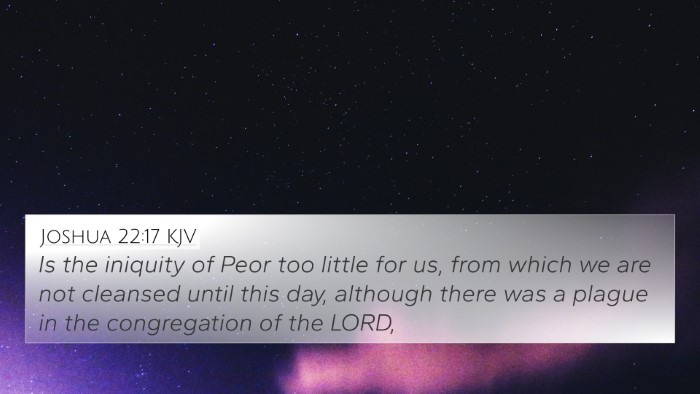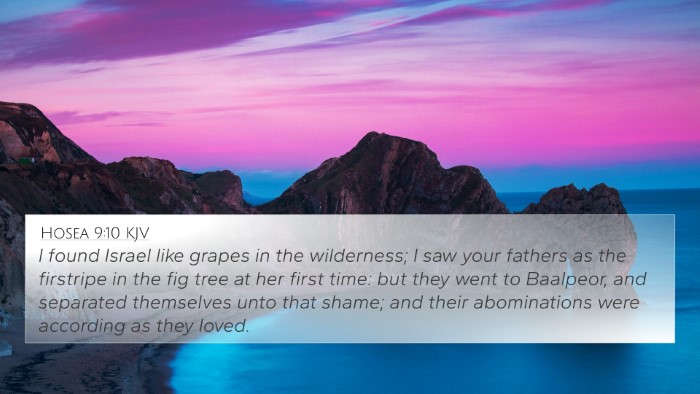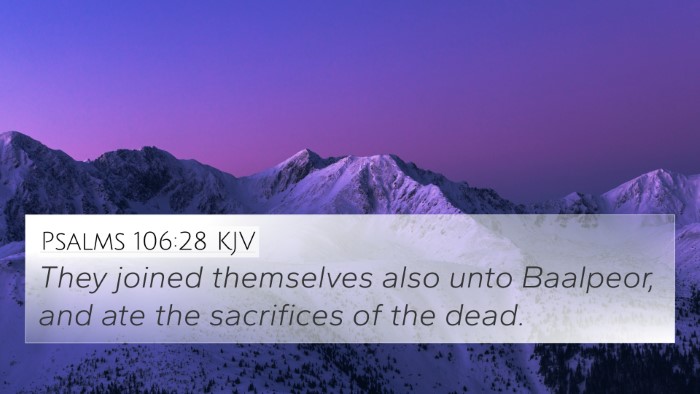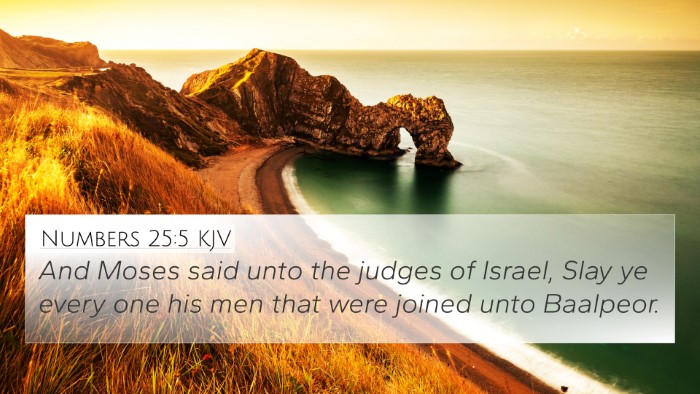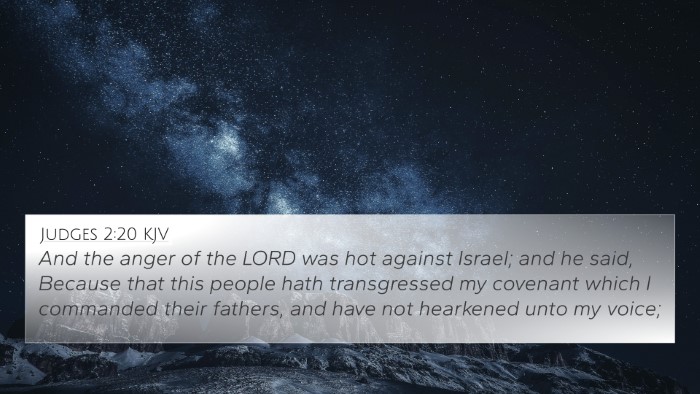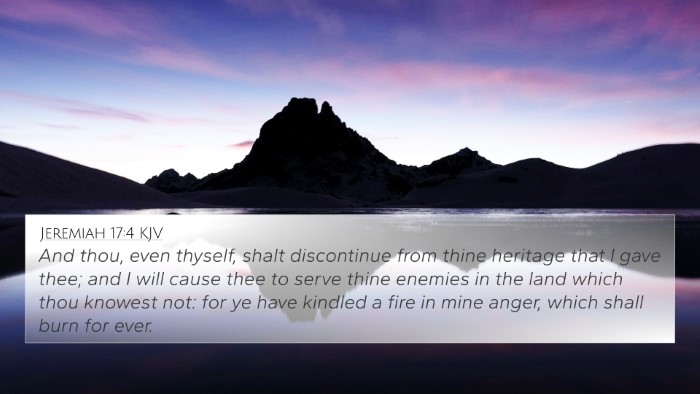Meaning and Interpretation of Numbers 25:3
Numbers 25:3 states, "So Israel joined himself unto Baalpeor: and the anger of the LORD was kindled against Israel." This verse is a pivotal moment reflecting the spiritual decline of the Israelites as they venture into idolatry, specifically worshiping Baalpeor, a Moabite deity. This event shows a crucial aspect of Israel's history of rebellion against God and highlights the severe consequences of turning away from divine commandments.
Context and Background:
The context of this verse is set within the narrative of the Israelites as they encamp on the plains of Moab, right before entering the Promised Land. They are influenced by the surrounding nations, especially the Moabites, which leads them into sin against God. In Numbers 25, the Israelites’ vulnerability to pagan practices becomes evident, illustrating the themes of temptation, sin, and subsequent judgment.
Insights from Commentaries:
- Matthew Henry: Henry emphasizes how the joining with Baalpeor represents a grave lapse in fidelity to God. He discusses the importance of distinguishing oneself from surrounding nations and stresses that the Israelites’ engagements with idolatry were not mere mistakes but acts of rebellion against God’s covenant.
- Albert Barnes: Barnes points out that the anger of the Lord was a direct response to the Israelites’ deliberate actions. He notes that Baalpeor was associated with licentiousness, showcasing that the worship ritual encompassed indulgent behaviors, leading the people further into sin. His exposition serves to remind believers of the dangers of associating closely with immoral practices.
- Adam Clarke: Clarke elaborates on the historical implications of Baalpeor, explaining that the worship included various immoral acts which were contrary to the laws given to the Israelites. He stresses that these actions brought severe consequences, reinforcing the idea that sin leads to spiritual downfall and divine wrath.
Bible Cross-References:
- Exodus 32:8 - The Israelites worshiping the golden calf reflects a similar breach in their faithfulness to God.
- Psalm 106:28-31 - This passage recounts the folly of the Israelites’ idolatry at Peor, drawing parallels to the events in Numbers 25.
- Hosea 9:10 - Hosea uses the imagery of their early idolatry to demonstrate Israel's continued unfaithfulness.
- 1 Corinthians 10:8 - Paul references this incident as an example of moral failure, warning Christians to take heed lest they fall.
- Revelation 2:14 - The church at Pergamos is warned of similar influences, tying the message back to the idolatry of Baalpeor.
- Deuteronomy 4:3 - A reminder to Israel to not follow the paths of the nations around them that led to idolatry.
- James 4:4 - This verse warns that friendship with the world is enmity with God, paralleling the dynamics seen in Numbers 25.
Thematic Connections:
This verse can be viewed through several thematic lenses, such as:
- Idolatry: The incident at Baalpeor underscores the constant temptation and allure of idol worship, which led Israel astray.
- God's Judgment: The anger of the Lord signifies His displeasure with His people’s unfaithfulness and the inevitability of judgment.
- Faithfulness vs. Unfaithfulness: Contrasting fidelity to God with betrayal through idol worship serves as a warning across the scriptures.
Conclusion:
Numbers 25:3 serves as a sobering reminder of the consequences of leading a life intertwined with worldly practices that lead us away from God. It invites readers to reflect on their own lives and the influences they allow to shape their beliefs and actions. By engaging with this verse through cross-referencing with other scriptural passages, one can gain deeper insights into the broader biblical themes of idolatry, judgment, and divine faithfulness.



